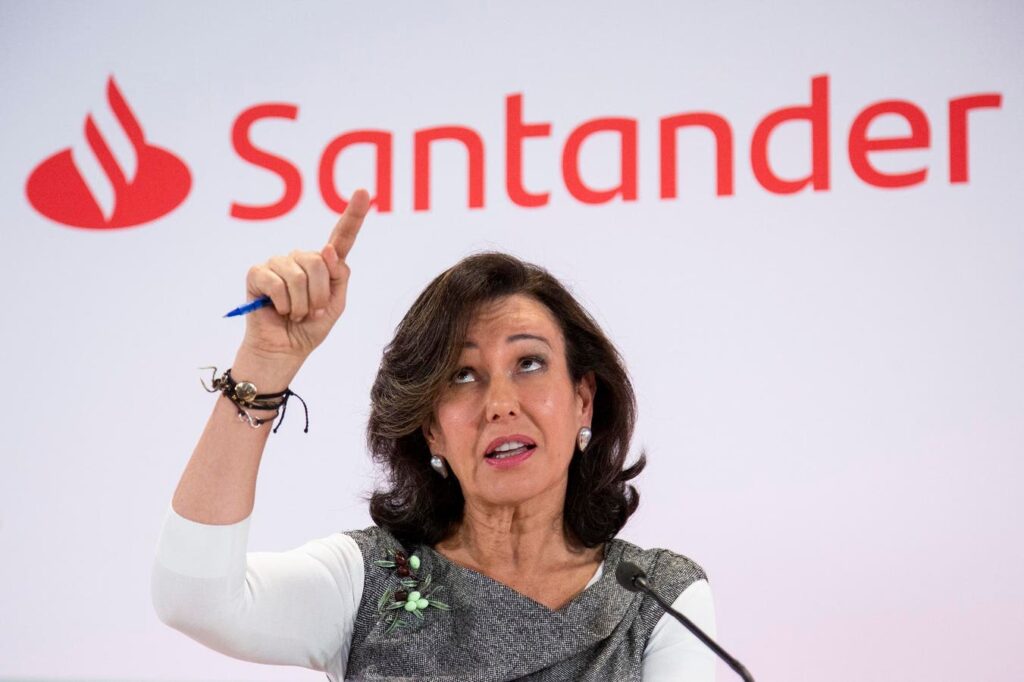Spain’s largest bank, Banco Santander, has provided $1.3 billion in backing to a firm that has carried out extensive deforestation in South America, a report by environmental NGO Global Witness has alleged.
According to the report, Santander began co-arranging financing for agricultural services company Cresud in 2011, despite the firm being known to have destroyed 170,000 hectares of rainforest since 2000.
The financing continued even after Santander adopted anti-deforestation policies in 2018 and net-zero targets in 2021, raising questions about major banks’ commitments to sustainability in agricultural financing.
“Cresud would not be able to turn a profit without being able to deforest because their entire business model relies on being able to raze large areas of climate-critical forests to the ground,” said Giulia Bondi, a senior campaigner at Global Witness. “And yet, when Banco Santander introduced a policy to limit financing of deforesting companies, their investments in Cresud actually increased.”
When questioned about its financing of Cresud, Santander spokespersons maintained that the bank’s practice is “not to comment on information relating to clients or specific transactions.” The bank described Global Witness’ allegations as “containing imprecisions and potential information regarding our policies that is not accurate,” but declined to provide specific evidence.
The affected forests—the Gran Chaco, Chiquitano and Cerrado—represent some of the world’s most critical ecosystems, serving as vital carbon sinks and biodiversity hotspots. These ancient woodlands store massive amounts of carbon, with their destruction releasing emissions equivalent to millions of transatlantic flights, while housing countless unique species and Indigenous communities who have lived there for generations.
Climate scientist Matías Mastrangelo emphasized to Global Witness the crucial value of the rainforest. “From a biological and cultural point of view, it is a unique place,” Mastrangelo said. “It is a great carbon reservoir. The population has a cultural richness which is being lost with deforestation.”
‘Investment Opportunity’
The evidence offered by Global Witness implies that Cresud treats rainforest as a real estate investment opportunity. “We see the countryside as an asset which can be bought and sold,” Cresud’s general manager for Argentina operations, Diego Chillado Biaus, said in July 2024. “We go to the areas where people don’t like to go, face production volatility, we manage to stabilise them [the fields] and we sell them to start up again.”
This strategy has proved highly profitable, with Cresud’s revenue growing from $49 million in 2010 to $1.4 billion in 2024. However, the environmental cost has been substantial, with the company clearing forest across Argentina, Brazil, Paraguay and Bolivia.
In 2023, Argentina, where Cresud is headquartered, experienced its worst drought in 60 years—a crisis that Mastrangelo explains was accelerated by deforestation. “When these processes of deforestation or degradation of vegetation occur, where that plant mass is lost, what one is losing is the connection, the water cycle of that vegetation links you to the atmosphere with the soil. The vegetation is the bridge.”
Local communities have reported on the severe impacts of the destruction. Sergio Rojas, an Indigenous activist from the Qom community, told Global Witness that, in addition to destroying rainforest, agricultural corporations had diverted rivers to irrigate their crops. “We are in a very difficult situation, because there is nothing to eat, nothing to drink, and the temperatures at the moment are also extreme,” Rojas said.
A Wichí indigenous community leader, speaking on condition of anonymity, said: “Before [the deforestation], we could walk barefoot to the river without getting burned. Today we can’t even walk 20 meters to visit our uncle’s house barefoot, because the heat is unbearable.”
‘Vague Policies’
Finance sector observers have criticized Santander’s decision to support Cresud. Ola Janus, from banking sector watchdog BankTrack, said: “Santander’s vague policies leave the door wide open for deforestation and human rights abuses tied to South American agribusiness. To show real commitment to ending deforestation, Santander should start by explicitly requiring clients and their suppliers not to contribute to the conversion or degradation of natural ecosystems.”
For its part, Cresud has claimed that it is now attempting to follow a more sustainable strategy, achieving sustainability certifications for two of its farms. But environmental campaigners are skeptical. “Purchasing RTRS [Round Table on Responsible Soy, the certification body] soy is no guarantee that a buyer is sourcing from a sustainable company, primarily because companies do not have to certify all of their farms,” said Lara Shirra White, a researcher for environmental NGO Earthsight. “Instead, they can cherry-pick those they wish to certify while continuing environmental and human rights abuses on others.”
This is not the first time Santander has been accused of supporting deforestation. In 2023, Greenpeace revealed that, in conjunction with Zurich-headquartered UBS, the Spanish bank had raised hundreds of millions of dollars in “green” bonds, a significant portion of which went to support farmers and ranchers that have been accused of environmental and human rights abuses in Brazil.
On its website, Santander claims that it is funding new forests in Spain and that it is actively involved in protecting forest in the Brazilian Amazon.
The bank did not immediately respond to a request for comment on the Global Witness report.
Read the full article here

